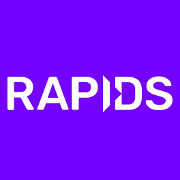| Rapids Data Analysis Libraries Updated |
| Written by Kay Ewbank |
| Tuesday, 17 March 2020 |
|
The RAPIDS software libraries collection for machine learning and data analysis has been updated with improvements to performance and core libraries. RAPIDS is a GPU-based collection of software libraries for machine learning and data analysis.RAPIDS can be used to create a data science pipeline including data loading, ETL, model training, and inference up to 50 times faster on typical end-to-end data science workflows. RAPIDS has been co-developed by NVidia and developers from some popular open-source projects, specifically Apache Arrow, pandas and scikit-learn. The software is also integrated into the Apache Spark open-source framework for data analytics.
The updated version benefits from some major refactoring to everything from the RAPIDS core to individual libraries The RAPIDS libraries are more interoperable and more performant. The developers say Python users should just see everything go faster with no changes to their code. The main lower level C++ library has also received major work. The refactoring operation has also improved interoperability with BlazingSQL and Java. The core cuML suite of libraries that implement machine learning algorithms and mathematical primitives functions has been improved with multi-node, multi-GPU (MNMG) algorithms to scale to larger datasets, along with the addition of pickling and model object cloning functionality for improved usability. The cuGraph library of graph algorithms has also been refactoed to improve interoperability with cuDF and cuML. cuDF provides a pandas-like API, and it too has undergone refactoring that is described as 'almost complete' with key APIs, such as join, sort, sort-based groupby, and the majority of string functions, having been ported to the new libcudf++ APIs and data structures. The BlazingSQL GPU accelerated SQL engine has been updated to support data-skipping, meaning WHERE clauses in SQL statements will selectively filter and load Apache Parquet row groups during query execution based on Parquet’s metadata. The developers say this substantially reduces the amount of data loaded into memory and enables users to work on even bigger workloads. The developers say the next version of RAPIDS will have many more features and will be released to coincide with NVidia's GTC conference later in March.
More InformationRelated ArticlesDatabricks Adds ML Model Export Machine Learning Added To Azure HDInsight Apache Kylin 2.5 Adds All-in-Spark Cubing Engine To be informed about new articles on I Programmer, sign up for our weekly newsletter, subscribe to the RSS feed and follow us on Twitter, Facebook or Linkedin.
{laodposition comment} |
| Last Updated ( Tuesday, 17 March 2020 ) |


